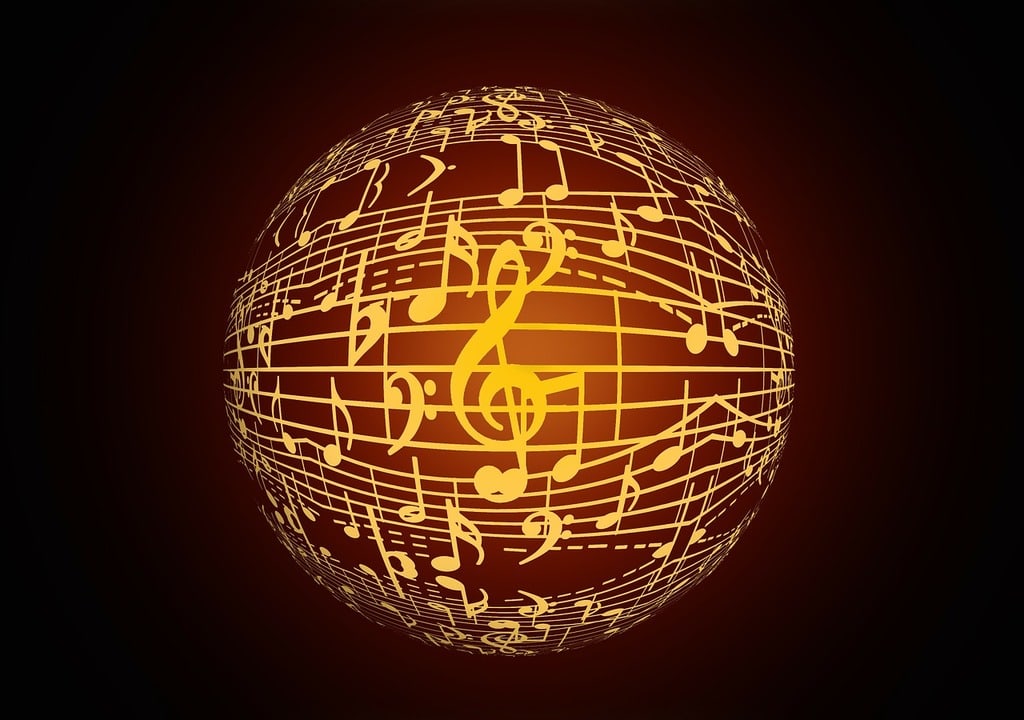The marriage of music and storytelling has always been a compelling one, particularly when it comes to the fantastical realms of science fiction and fantasy. These genres, with their expansive universes, mysterious characters, and otherworldly landscapes, offer fertile ground for musicians to explore new sonic territories. Music inspired by sci-fi and fantasy worlds takes listeners on journeys beyond the limits of reality, evoking the wonder, adventure, and complexity of the stories that sparked their creation. This article delves into how various artists and composers have drawn from these imaginative genres to craft music that resonates with fans and enthusiasts alike.
Music Inspired by Science Fiction and Fantasy Worlds: a Unique Soundscape
Sci-fi and fantasy have influenced music across a variety of genres, from orchestral scores that accompany epic cinematic battles to electronic tracks that capture the essence of futuristic cities. The emotional depth and expansive nature of these genres provide artists with limitless possibilities to create music that not only complements the narratives but also stands alone as a form of storytelling.
One notable example is the work of John Williams, whose scores for the “Star Wars” franchise have become iconic in both the film and music industries. The sweeping melodies, heroic themes, and intricate compositions encapsulate the grandeur of the galaxy far, far away. Similarly, Howard Shore’s compositions for “The Lord of the Rings” trilogy evoke the rich history and diverse cultures of Middle-earth, drawing listeners into a world of magic, bravery, and destiny.
Beyond film scores, numerous artists have explored sci-fi and fantasy themes within their music. The electronic music duo Daft Punk, for instance, created an entire album, “Discovery,” which was later adapted into the animated film “Interstella 5555,” a space opera that merges music with interstellar adventure. This blend of music and visual storytelling has become a hallmark for artists who wish to transcend the traditional boundaries of music.

Artists Who Embody Sci-Fi and Fantasy in Their Music
Artists across the musical spectrum have drawn inspiration from sci-fi and fantasy, using these genres as a foundation to explore new ideas and push creative boundaries. David Bowie, often referred to as the Starman, is a prime example. His alter ego, Ziggy Stardust, was a character from outer space, whose story was told through the album “The Rise and Fall of Ziggy Stardust and the Spiders from Mars.” This album not only introduced listeners to a complex narrative but also challenged societal norms with its futuristic and androgynous aesthetic.
Another example is the progressive rock band Rush, whose 1976 album “2112” presents a dystopian future where individualism is suppressed by a totalitarian regime. The album’s intricate compositions and thought-provoking lyrics have made it a cornerstone of sci-fi-inspired music, influencing countless artists who followed.
In the realm of metal, the band Blind Guardian has consistently drawn from fantasy literature for their albums. Their work often references J.R.R. Tolkien’s Middle-earth, with songs like “Nightfall in Middle-Earth” recounting the tale of “The Silmarillion.” The band’s ability to translate the epic nature of Tolkien’s work into powerful, energetic music has earned them a dedicated following among both metal fans and fantasy enthusiasts.
Exploring Sci-Fi and Fantasy Through Different Musical Styles
The influence of sci-fi and fantasy extends beyond any one musical genre, permeating everything from classical compositions to modern pop. Each genre brings its own unique approach to interpreting these themes, contributing to a diverse musical landscape that mirrors the variety found within the stories themselves.
Classical and orchestral music often provides the backdrop for epic sci-fi and fantasy films. Composers like Jerry Goldsmith, who scored “Star Trek: the Motion Picture,” and James Horner, who composed the music for “Avatar,” have created iconic scores that transport audiences to new worlds. The symphonic nature of these scores allows for the creation of vast soundscapes that match the grandiosity of the narratives.
In contrast, electronic and ambient music often delve into the more abstract and futuristic aspects of sci-fi. Artists like Vangelis, known for his work on the “Blade Runner” soundtrack, utilize synthesizers and electronic instruments to craft immersive auditory experiences that reflect the dystopian, cyberpunk aesthetics of the genre. These compositions often challenge listeners to envision the future and consider the implications of technological advancements.
Pop and rock musicians, too, have embraced sci-fi and fantasy themes. Bands like Muse have incorporated futuristic elements into their music, with albums like “The Resistance” exploring concepts of rebellion and dystopia. Their use of elaborate stage designs and multimedia in live performances further enhances the connection between their music and the speculative worlds they draw inspiration from.
Key Elements in Sci-Fi and Fantasy-Inspired Music
Music that draws from sci-fi and fantasy often shares several key elements, which can be found across various genres. These elements include :
- Narrative-driven compositions: many artists use their music to tell stories, creating albums that follow a specific theme or storyline.
- Epic and grandiose soundscapes: the music often mirrors the scale of the worlds being depicted, with sweeping melodies and complex arrangements.
- Innovative instrumentation: from orchestras to synthesizers, a wide range of instruments is used to capture the unique atmospheres of sci-fi and fantasy settings.
- Themes of heroism, rebellion, and exploration: these common themes in sci-fi and fantasy are frequently reflected in the lyrics and tone of the music.
These elements help to define the genre and create a distinct listening experience that resonates with fans of both music and speculative fiction.
The Ever-Expanding Universe of Music and Fantasy
As new sci-fi and fantasy stories continue to emerge, so too does the music inspired by them. Whether through film scores, concept albums, or genre-defying compositions, the relationship between music and these imaginative genres remains dynamic and ever-evolving. This synergy allows for endless possibilities, as artists continue to explore and expand the boundaries of what music can achieve within the realms of sci-fi and fantasy. By embracing these genres, musicians can transport listeners to worlds beyond their own, making the impossible seem not just possible, but real.
